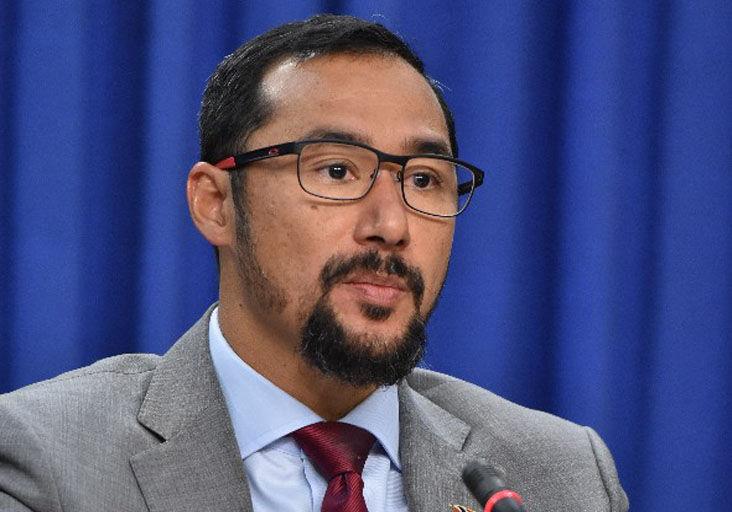(Trinidad Express) The “vast majority” of stranded nationals have been cleared by the Ministry of National Security to return home, giving way for a new category of returning nationals to enter the country.
Speaking at a COVID-19 briefing in Port of Spain on Saturday, National Security Minister Stuart Young said that 13,042 exemption applications have been made thus far to the Ministry.
Of this number, 7,204 were granted, and 5,838 of these are yet to be granted.
Young said that the number of applications to re-enter the country have grown since July, with new categories of people seeking entry into the country. These include persons who received exemptions to leave the country while the borders remain closed, nationals domiciled outside the country and those who are seeking to return home for the upcoming Christmas season.
“What you are seeing is that the numbers continue to rise and the breakdown of those statistics is that we have persons as I have said before, who may have been domiciled outside of Trinidad and Tobago, nationals of Trinidad and Tobago but making their lives elsewhere, who joined the queue to come home. Now we are also having two other categories of persons add to that 13,000 number.”
“Those categories are all of our flights that have been leaving Trinidad and Tobago since we have resumed on a weekly basis. Those categories now are those persons who, I don’t know how to put it, jump on those flights to leave and expect to again immediately turn around when they finish their business outside. They are sometimes demanding to jump the queue to get back into Trinidad ahead of those who are stuck outside. That is something out policy has been fighting against because we have always prioritized those who are stuck outside our borders.”
“The next category that we are conscious of and the Prime Minister will touch on it I’m sure, is persons who want to come home. We may have had students who were studying outside and want to come home, other nationals who are accustomed coming home for Christmas or to Trinidad who haven’t come home for the year, they also now joined these numbers,” he said.
For those who fall into the latter category, Prime Minister Dr Keith Rowley announced protocols to allow incoming persons to return home before Christmas. Those who may wish to leave the country for Christmas, he said, would also be granted access.
Not all applications to return can be accepted, he said, to avoid an explosion in COVID-19 cases. Those who leave, will be placed in the remaining queue awaiting return.
“As much as possible we will try to meet the emotional needs of persons who want to come home for Christmas, we have some protocols that we want to outline. The Divali season is upon us and the Christmas season is virtually upon us and we know that there are people who waited out hoping to come home for Christmas, persons who may want to go out for Christmas. You should know that if you go out for Christmas, you may to be able to come back in immediately because we have a line,” he said.
Coming into effect on November 15, these protocols will ask persons requesting return to produce a negative PCR test 72 hours before entry. Upon arrival, the individual will be tested again and asked to quarantine in State facilities or State supervised facilities. After producing a second negative result on the sixth day of quarantine, these persons will be released.
Young asked that this category makes use of the State supervised quarantine option which asks incoming individuals to cover the cost of their stay. A new State quarantine facility, the Kapok Hotel will be made available. This new facility, he said, carried a 100-room capacity.
“We have agreed to now introduce another facility as a State supervised quarantine facility. This is the Kapok Hotel, which is going to give us an additional 100 rooms. What am asking is for the persons who may be fortunate enough to get into the queue to come home for Christmas, we are going to be asking many of them to utilize State supervised quarantine, In other words, pay for the hotel facilities in your seven days on arrival, because it increases the amount of persons we can manage in our quarantine facilities,” he said.
To facilitate this, more flights in addition to the weekly four flights being carried out, will be put on.
This system, Young said, will not replace the existing exemption policy in place which categorizes incoming people based on the level of risk from where they are returning. Granting of exemptions. He said, will continue to prioritize those stranded,
Instead, he said, this new category is separated from the existing queue.
“We believe we have cleared the vast majority of persons who were stuck outside when the borders were closed. We will continue to have our prioritization and our policy as to how we repatriate persons… The same travel exemption system remains in place. We are asking people to provide this new information. A statement will be out but the same exemption policy at the Ministry of National Security remains in place,” he said.

